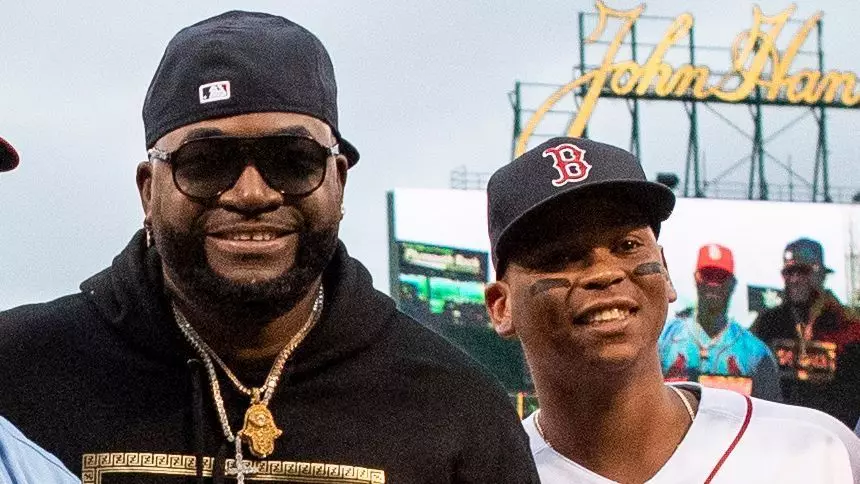In the bustling world of Major League Baseball, player decisions often unfold under the limelight of public scrutiny and media speculation. Recently, Red Sox legend David Ortiz weighed in on the pressing situation regarding designated hitter Rafael Devers, emphasizing the need for athletes to be given the autonomy to shape their careers. Ortiz’s input comes in the wake of the unfortunate injury to first baseman Triston Casas, which has rekindled discussions about shifting Devers from his current DH role to first base. Ortiz, a Hall of Famer renowned for his own contributions as a designated hitter, has a vested interest in how this narrative unfolds, ultimately conveying a profound message: players should be allowed to chart their own course on the field.
The Fallout of Injuries and Roster Decisions
The injury to Casas, who underwent surgery for a ruptured tendon, has left the Boston Red Sox in a bind, necessitating an evaluation of the team’s lineup and strategy. The organization signed Alex Bregman to a significant contract, ostensibly to provide stability, which implied that Devers would largely be confined to the DH role. The abrupt change in Devers’ responsibility could potentially disrupt his rhythm and overall performance. Ortiz contended that while switching positions might seem beneficial on paper—enhancing overall team dynamics—it’s essential to recognize that athletic transitions require time and commitment. Players like Devers thrive under consistency, and Ortiz’s plea for patience and understanding resonates profoundly amidst the backdrop of escalating roster challenges.
Building Trust and Ownership
The theme of ownership runs strong in Ortiz’s commentary. He champions the idea that players should feel empowered to decide their paths, particularly when transitioning to new roles. The conversation Ortiz recalled with Devers during spring training reveals how crucial trust and dialogue are in a team environment. Ortiz highlights that the team’s expectations of Devers to take on the DH role were clearly stated, but the stakes shift dramatically in the wake of injuries. While external pressures may dictate a more aggressive reallocation of responsibilities, it’s vital that the franchise remains in tune with the player’s perspective. Allowing Devers to express disinterest in a position change—like he’s done regarding first base—unlocks a conversation about mental readiness and physical preparation, both of which are critical in maintaining peak performance.
Performance Amidst Expectations
Despite a challenging start to the season, Devers has emerged with commendable statistics, boasting a .286 batting average along with 12 homers and leading the league with 52 RBIs at the point Ortiz spoke to the press. This performance speaks volumes about not only his talent but also his commitment in fulfilling the role handed to him. As Ortiz pointed out, learning a position takes time; a sentiment rooted in Ortiz’s own experience with the duality of playing first base and serving as a designated hitter. The evolution of the game since Ortiz’s early days further complicates matters. The need for players to fit into fluid roles has escalated, making it more essential than ever for teams to tread carefully in their decisions.
A Broader Implication for the Future
Ultimately, the dialogue sparked by Ortiz’s statements serves a larger commentary on player agency in the evolution of baseball. As teams weigh decisions amidst shifts in roster dynamics, the need for an athlete’s voice to be heard cannot be overstated. Ortiz’s call for athletes to have a say in their positioning not only nurtures individual player growth but will also foster a more supportive team environment and, consequently, contribute to overall team success. Decisions made in haste can lead to negative ramifications, and recognizing that players’ comfort in their roles translates to on-field success is a crucial consideration for management.
Ortiz’s humane perspective encourages teams to treat their players as stakeholders in their careers, honoring their preferences while fostering a nurturing platform for their development. This partnership approach may prove vital in positioning the Red Sox—and other franchises—toward achieving their ultimate goal: winning championships while ensuring their players thrive personally and professionally.

